Karens and Entitlement Culture: Unpacking Social Injustice
Category: Social Issues
Understanding the Rise of Karens and Entitlement Culture
In today’s socially aware landscape, the term “Karen” has become shorthand for a particular brand of entitlement that disrupts social harmony and often perpetuates injustice. If you have found yourself grappling with instances where entitled behavior leads to unfair outcomes—from public confrontations to systemic biases—you’re not alone. This post is crafted for socially conscious readers who seek a deeper critique of entitlement culture, especially as embodied by ‘Karens,’ and how it impacts social justice. You likely have seen or experienced these moments of disproportionate demands, racial biases, or needless escalations stirred up by individuals acting beyond social norms. Yet, understanding why this behavior persists and how it influences community dynamics isn’t straightforward. Here, we dissect the roots, manifestations, and consequences of Karen-like entitlement, offering a fresh perspective that goes beyond viral videos and memes. We analyze psychological, social, and cultural forces at play, helping you navigate conversations around entitlement with nuance. Whether you’re familiar with popular discourse or seeking original commentary that sharpens your insights on social disruption, this post guides you through the complex layers of entitlement culture. Keep reading to discover how these behaviors fuel injustice and what we can learn to foster more equitable interactions.
- Understanding the Rise of Karens and Entitlement Culture
- Defining the 'Karen' Phenomenon: Origins and Evolution
- Entitlement Culture Explained: Psychological and Sociological Perspectives
- Common Entitled Behaviors and Their Social Impact
- Entitlement and Social Injustice: Why Karens Fuel Inequality
- Case Studies: Viral Karen Incidents and What They Reveal
- The Role of Social Media in Amplifying Entitlement Narratives
- Cultural Criticism: Intersection with Race, Gender, and Class
- Strategies to Challenge and Deconstruct Entitlement Culture
- Legal and Institutional Responses to Entitlement-Driven Conflicts
- Moving Forward: Building a More Just and Respectful Social Landscape
Defining the 'Karen' Phenomenon: Origins and Evolution
The term “Karen” has evolved from a simple meme into a powerful cultural symbol representing entitlement, social disruption, and often racial bias. Its origins trace back to early 2010s internet culture, where “Karen” was initially a generic name used humorously to depict a particular type of middle-aged white woman exhibiting privilege and demanding behavior. Over time, this caricature gained clarity and specificity, becoming shorthand for individuals who abuse social power to impose their will, often at the expense of others’ dignity and fairness.
Cultural Adoption and Symbolism
The rise of social media accelerated the spread of “Karen” as a concept, capturing viral moments where entitled demands led to public confrontations, unnecessary police involvement, or blatant disregard for societal norms. More than just a nickname, “Karen” embodies entitlement culture—a mindset where perceived status grants unwarranted authority over others and resistance to accountability. This behavior not only stirs social tension but exposes underlying issues of systemic injustice, including racial profiling and class privilege. Understanding the term’s evolution is crucial for recognizing how everyday acts of entitlement contribute to broader patterns of inequality and community disruption.
By examining how “Karen” has morphed from internet slang into a symbol of social discord, we gain insight into the mechanisms driving entitlement culture and its consequences. The phenomenon acts as a mirror reflecting societal frustrations around fairness and justice, making it a potent tool for social critique and awareness.
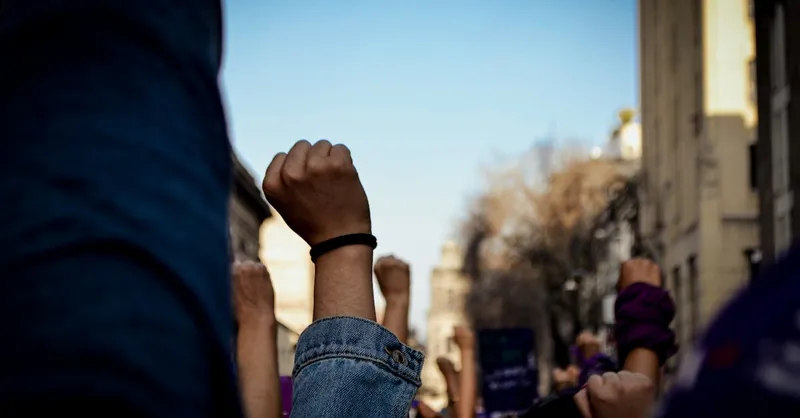
Image courtesy of Montse Posada
Entitlement Culture Explained: Psychological and Sociological Perspectives
To fully grasp the entitlement culture so often manifested through “Karen” behavior, it is essential to explore its psychological and sociological roots. At its core, entitlement culture arises from a complex interplay of individual mindset and broader societal influences that foster a sense of unearned privilege and expectation of special treatment. Psychologically, entitlement is linked to an inflated sense of self-importance and a belief that one’s needs and desires should be prioritized above others’. This can be traced to cognitive distortions where individuals overestimate their rights while underrecognizing communal responsibilities or social boundaries.
From a sociological perspective, entitlement culture is often a symptom of systemic inequalities and social stratification. In societies marked by stark divisions of race, class, and power, entitlement behaviors become mechanisms for maintaining or asserting dominance. For example, when “Karens” demand excessive service or escalate minor disputes, they reinforce embedded social hierarchies that privilege whiteness, wealth, or social status. This behavior is perpetuated and amplified by cultural narratives that celebrate individualism and consumer rights over collective wellbeing. Ultimately, entitlement culture fuels social fragmentation and injustice by prioritizing personal grievance and control over empathy and fairness, making it a critical barrier to progress in equity and community cohesion. Understanding these psychological and sociological underpinnings is vital in addressing and dismantling the pervasive influence of entitlement in everyday interactions.
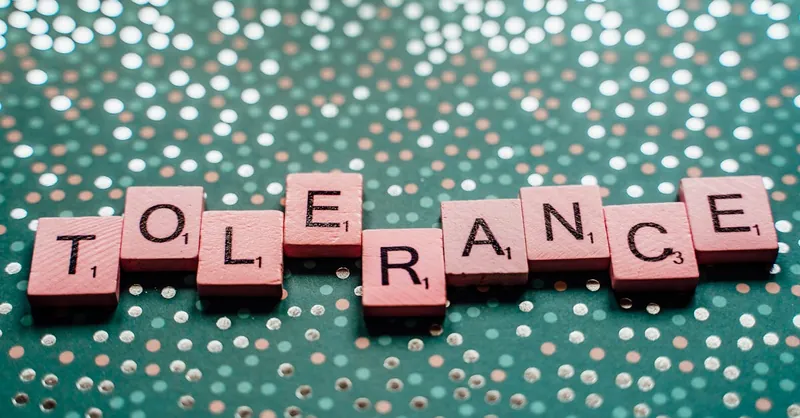
Image courtesy of Alesia Kozik
Common Entitled Behaviors and Their Social Impact
The hallmark behaviors exhibited by “Karens” often go beyond mere inconvenience, causing tangible harm to individuals and communities. Typical entitled actions include public confrontations, where demands are escalated unnecessarily, often involving store managers, service employees, or law enforcement over minor disputes. These public outbursts not only disrupt social order but create an atmosphere of fear and hostility, deterring community cohesion and mutual respect.
Another disturbing pattern is racial profiling — a clear misuse of privilege where “Karens” weaponize their social status to unfairly target people of color under the guise of suspicion or self-proclaimed authority. Such actions not only perpetuate systemic racism but also sow divisiveness and distrust in public spaces, exacerbating social inequalities. Additionally, the misuse of privilege, whether through demanding special treatment, circumventing rules, or enlisting authorities for trivial matters, reinforces unfair power dynamics and erodes the social fabric.
These behaviors cumulatively result in:
- Increased social tension and anxiety within affected communities.
- Reinforcement of systemic biases and racial injustices.
- Undermining of trust in institutions, as police and businesses are pulled into unwarranted conflicts.
- Disproportionate consequences on marginalized groups, including emotional trauma and unjust legal repercussions.
By spotlighting these common entitled behaviors and their broader social repercussions, it becomes clear how “Karen” incidents are far more than isolated rants—they are symptomatic of a deeper entitlement culture that threatens social equity and harmony. Recognizing this impact is a crucial step in challenging and dismantling these harmful behaviors within our communities.

Image courtesy of Keira Burton
Entitlement and Social Injustice: Why Karens Fuel Inequality
At the heart of the “Karen” phenomenon lies a toxic cocktail of entitlement and systemic social injustice. These behaviors do not occur in a vacuum; rather, they interact with and exacerbate existing inequalities, deepening societal divides. When a “Karen” insists on preferential treatment or weaponizes institutional power, she is effectively upholding and reinforcing structures of oppression—often unconsciously. This reinforcement comes in multiple forms:
- Amplifying racial and class disparities: By demanding intervention from authorities disproportionately on marginalized groups, Karens contribute to the criminalization and stigmatization of these communities. This behavior leverages privilege based on race, socioeconomic status, and cultural capital, perpetuating cycles of discrimination and exclusion.
- Distorting access to justice and resources: Entitled demands can clog institutional systems—such as law enforcement, customer service, or social services—with unjust grievances while diverting attention from genuine issues faced by underserved populations. This misallocation undermines efforts toward fairness and equitable treatment.
- Normalizing inequitable social hierarchies: Each incident where entitlement goes unchecked sends a message that some individuals are above accountability, fostering resentment and eroding social trust. Over time, the repeated assertion of privilege by Karens becomes a barrier to meaningful social change, as it validates exclusionary attitudes and behaviors.
By understanding the role of entitlement culture as a glue holding systemic inequalities together, it becomes clear why confronting “Karen” behavior is more than policing manners—it is a necessary challenge to social injustice. Addressing these patterns requires not only individual self-awareness but also collective efforts to dismantle the underlying power imbalances that entitlement perpetuates. Only through acknowledging how entitlement feeds inequality can communities begin to build the foundation for true fairness and inclusion.
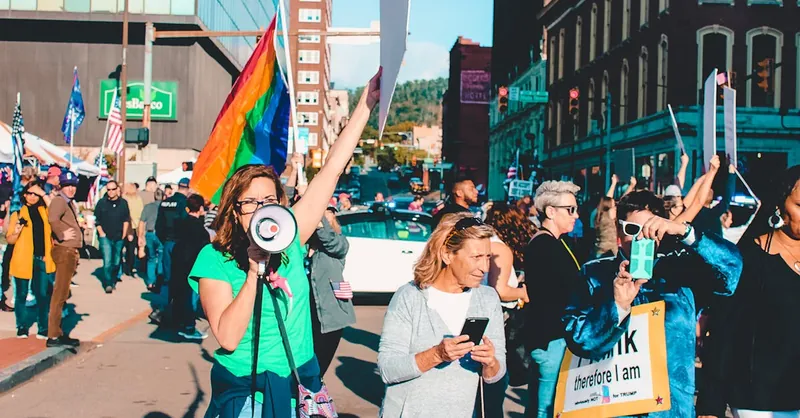
Image courtesy of Rosemary Ketchum
Case Studies: Viral Karen Incidents and What They Reveal
Examining prominent viral Karen incidents provides invaluable insight into the entrenched patterns of entitlement culture and its social impact. These real-life examples are not just isolated moments of frustration or rudeness; they exemplify larger dynamics of power abuse, racial bias, and disregard for social norms. A few well-known cases reveal recurring themes such as unnecessary escalation, weaponization of social privilege, and the dismissal of others’ rights.
Notable Viral Incidents and Their Common Traits
-
The Central Park “Can I Call the Police?” Confrontation
This incident involved a white woman who accused a Black birdwatcher of threatening her, despite the lack of any real threat. Her quick resort to calling law enforcement exposed how entitlement frequently manifests as racial profiling and a default distrust of marginalized groups. Public reaction widely condemned the misuse of police power rooted in implicit bias, highlighting how entitlement culture exacerbates racial injustice. -
The Hair Salon Refusal Incident
In another viral case, a woman refused service to a customer citing discriminatory reasons, justifying her action based on personal preference while invoking entitlement to her business autonomy. This sparked debates on privilege and discrimination, revealing how entitlement can embolden individuals to bypass ethical considerations and contribute to systemic exclusion. -
The Grocery Store Mask Dispute
Multiple viral clips show “Karens” refusing to comply with public health mandates, disrupting operations and demanding special treatment. These confrontations underscore a pattern of prioritizing perceived individual rights over community wellbeing, reflecting entitlement’s role in undermining collective responsibility.
What These Cases Reveal About Entitlement Culture
- Escalation over minor conflicts: Instead of seeking reasonable resolution, entitlement-driven individuals escalate disputes disproportionately, often dragging in authority figures like managers or police unnecessarily.
- Racial and social biases: Many incidents disproportionately target people of color or marginalized individuals, making entitlement an active agent in perpetuating systemic racism.
- Social media amplification: The viral nature of these incidents reflects society’s growing awareness and frustration with entitlement behaviors, yet also occasionally fuels performative outrage rather than substantive change.
- Erosion of community trust: Each viral episode chips away at public confidence in social institutions, from businesses to law enforcement, as they become battlegrounds for entitlement contests rather than service or protection.
By evaluating these case studies, we recognize that viral “Karen” moments are symptomatic of a broader culture of unchecked entitlement that threatens social justice and civility. Understanding the patterns behind these incidents empowers us to identify entitlement more clearly and advocate for systemic reforms that curb such behaviors, fostering dignity, respect, and fairness in everyday interactions.

Image courtesy of Jorge Soto Farias
The Role of Social Media in Amplifying Entitlement Narratives
Social media platforms have become the primary battleground where entitlement culture and Karen behavior are both amplified and scrutinized. These digital spaces facilitate rapid sharing of viral “Karen” moments—video clips, memes, and personal accounts—that expose instances of entitlement, public disruptions, and racial bias. While this increased visibility can promote awareness and social critique, it also contributes to fueling entitlement narratives in complex and sometimes problematic ways.
How Social Media Fuels the Karen Stereotype and Entitlement Culture
-
Virality and Sensationalism: Social media thrives on sensational content that sparks strong emotions. Clips showing entitled outbursts or public confrontations quickly go viral, often stripped of nuanced context. This can reinforce one-dimensional “Karen” stereotypes and reduce complex social issues to bite-sized outrage, encouraging performative responses rather than thoughtful dialogue.
-
Social Validation and Crowd Policing: Platforms like Twitter, Instagram, and TikTok create environments where entitlement is both challenged and reinforced through public shaming or support. Some users amplify entitlement behaviors by expressing admiration or solidarity with “Karens,” while others fervently call out and condemn these actions. This polarized feedback loop encourages performative entitlement or vigilantism, perpetuating public conflicts rather than resolving underlying issues.
-
Echo Chambers and Algorithmic Bias: Algorithms prioritize engagement, often promoting the most provocative or divisive content. This can lead to echo chambers where narratives about entitlement and “Karens” become circular and exaggerated. Users entrenched in these bubbles may internalize entitlement culture as normative or essential to defending perceived rights, escalating social tensions offline and online.
-
Normalization of Public Confrontation: The frequent exposure to entitlement incidents on social media can desensitize audiences to the disruptive effects of such behavior. This normalization risks legitimizing overreactions, racial profiling, and abuse of authority, making entitled conduct seem more acceptable or commonplace.
While social media has been instrumental in unveiling the systemic injustices tied to entitlement culture, it also poses serious challenges by amplifying stereotypes, encouraging performative outrage, and fostering divisive conversation. Recognizing these dynamics is crucial for developing more constructive online discourse and fostering accountability that goes beyond viral moments—toward real social change and empathy in addressing entitlement culture.

Image courtesy of Suki Lee
Cultural Criticism: Intersection with Race, Gender, and Class
Entitlement behavior, as epitomized by the “Karen” archetype, cannot be fully understood without examining its deep intersections with race, gender, and socioeconomic status. These entangled identities shape how entitlement manifests and how society perceives and responds to such behavior, revealing much about underlying structures of white privilege, sexism, and classism.
White Privilege as the Backbone of Entitlement Culture
At its core, much of the typical “Karen” entitlement relies heavily on white privilege—an unearned societal advantage that grants greater credibility, authority, and presumption of innocence to white individuals over marginalized groups. When a “Karen” weaponizes social spaces by calling the police or demanding special treatment, she draws upon a system that historically centers whiteness as the default norm with inherent rights to protection and deference. This exploitation not only enforces racial hierarchies but also perpetuates racial profiling and systemic injustice, as people of color disproportionately bear the consequences of these actions, from unwarranted surveillance to harassment.
Gendered Dimensions of Entitlement
The “Karen” phenomenon also unpacks complex gender dynamics, where entitlement is often displayed through a socially sanctioned expression of power by middle-class white women. While women have historically faced marginalization, the “Karen” stereotype exposes how some women leverage gendered social expectations—such as perceived vulnerability or moral authority—to assert dominance and manipulate institutional systems. This interplay of gender and entitlement challenges traditional notions of power, highlighting how sexism can intersect with privilege to enable certain women to act aggressively under the guise of righteous indignation, often at the expense of others’ dignity.
Socioeconomic Status and Access to Power
Finally, the expression of entitlement behavior is closely tied to class privilege, where financial stability and social capital provide resources, influence, or credibility unattainable to marginalized populations. Entitled demands frequently arise in contexts where individuals assume their economic position justifies exceptional treatment or exemptions from rules. This class-based entitlement further compounds social inequalities, as it creates barriers for lower-income or less connected individuals who lack the means to contest unfairness or access institutional support.
Together, these intersections reveal that Karen behavior is not merely individual rudeness but a reflection of systemic inequalities embedded in race, gender, and class. Addressing entitlement culture thus requires challenging these entrenched social hierarchies and understanding how privilege shapes everyday interactions and conflicts. Only through this nuanced cultural criticism can we dismantle the entitlement that fuels injustice and begin fostering genuinely equitable and respectful communities.
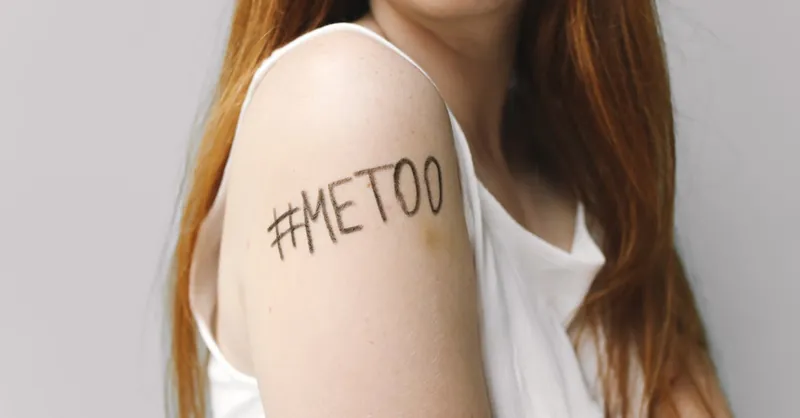
Image courtesy of Polina Tankilevitch
Strategies to Challenge and Deconstruct Entitlement Culture
Confronting the pervasive influence of entitlement culture, especially as embodied by “Karens,” requires deliberate and sustained strategies that foster empathy, equity, and social accountability. To effectively counteract entitled behaviors in society, individuals and communities must move beyond mere condemnation to actionable approaches that disrupt entitlement mindsets and promote mutual respect.
Foster Empathy through Education and Awareness
-
Promote Critical Awareness of Privilege: Encouraging individuals to recognize how white privilege, class advantage, and gender dynamics contribute to entitlement behavior is foundational. Educational initiatives—whether through workshops, community dialogues, or media literacy campaigns—can sharpen critical consciousness, making entitlement culture less invisible and more subject to critique.
-
Encourage Perspective-Taking: Developing empathy involves training people to understand others’ experiences, particularly those marginalized or harmed by entitlement. Storytelling, community listening sessions, and inclusive narratives in schools and workplaces help humanize those affected by entitlement-driven conflicts, reducing biases and dismantling stereotypes.
Establish Clear Social Norms and Accountability Mechanisms
-
Define and Communicate Boundaries: Organizations and institutions must articulate clear policies that discourage entitlement behaviors, such as racist profiling, abusive demands, or unjustified escalations. This includes comprehensive anti-discrimination rules and conflict resolution protocols that hold all parties accountable irrespective of status.
-
Empower Bystanders and Witnesses: Creating a culture where observers intervene constructively when witnessing entitlement can curb escalation. Bystander intervention training equips communities to safely address and challenge entitled actions in real time, fostering collective responsibility.
Cultivate Inclusive Spaces That Prioritize Equity
-
Center Marginalized Voices: Efforts to dismantle entitlement culture should amplify voices historically silenced by systemic privilege. Inclusion in decision-making, policy formation, and conflict mediation ensures that solutions address root causes rather than symptoms of entitlement.
-
Promote Restorative Justice Approaches: Instead of punitive responses alone, embracing restorative justice facilitates dialogue, accountability, and healing between aggrieved parties. This approach challenges entitlement by shifting focus from domination and punishment to restoration and understanding.
Leverage Media and Social Platforms Responsibly
-
Support content and conversations that deconstruct entitlement culture thoughtfully rather than sensationalizing conflict. Elevating nuanced discussions improves public understanding and reduces performative outrage.
-
Encourage social media users to call out entitlement behaviors with context and compassion, avoiding amplification of divisive stereotypes while advocating for systemic change.
By integrating these strategies, societies can weaken the grip of entitlement culture and the “Karen” phenomenon, replacing it with a culture grounded in equity, empathy, and shared humanity. This transformation not only prevents entitlement-driven disruptions but also strengthens communal bonds and advances social justice for all.

Image courtesy of Markus Winkler
Legal and Institutional Responses to Entitlement-Driven Conflicts
As entitlement-driven behaviors, often epitomized by “Karen” incidents, increasingly disrupt public spaces and social institutions, businesses, law enforcement agencies, and other institutions have developed targeted responses to address and mitigate these conflicts. These legal and institutional measures play a crucial role in holding entitled individuals accountable while protecting the rights and dignity of all parties involved.
Business and Corporate Policies
Many businesses now implement strict anti-harassment and anti-discrimination policies designed to discourage entitled and abusive conduct toward employees and other customers. Retailers, restaurants, and service providers often:
- Train employees on de-escalation and conflict resolution to handle “Karen”-style confrontations calmly and safely without immediately resorting to law enforcement.
- Empower managers to enforce zero-tolerance policies against harassment, including removing patrons whose entitlement behaviors violate business codes of conduct.
- Utilize incident reporting systems to document entitlement conflicts, enabling organizations to track patterns and take proactive steps toward preventing recurrences.
Together, these measures reduce the frequency and impact of entitlement-related disturbances, protect worker rights, and signal that abusive demands will not be tolerated.
Law Enforcement and Accountability
Law enforcement responses to entitlement-driven calls are increasingly scrutinized, especially when “Karen” behaviors result in unjustified police involvement. Agencies have begun to:
- Implement bias training and clearer guidelines on handling calls that may stem from entitlement, particularly those involving racial profiling or minor disputes.
- Promote alternative dispute resolution mechanisms such as mediation or community liaison officers, reducing unnecessary escalation through police presence.
- Establish accountability frameworks that hold complainants and officers responsible when actions stem from misuse of institutional power or discriminatory motivations.
These institutional shifts aim to curb the misuse of police resources and mitigate the social harms perpetuated by entitlement-driven conflicts.
Institutional and Legal Remedies
On a broader level, legal systems and institutions are evolving to better address entitlement culture’s consequences:
- Civil rights laws and anti-discrimination statutes provide remedies against racial profiling and discriminatory treatment often deployed by entitled individuals.
- Workplace and consumer protection laws offer recourse for service workers and marginalized customers subjected to abusive or prejudiced behavior.
- Courts increasingly recognize the societal harm caused by entitlement-driven incidents, sometimes holding individuals accountable through penalties or injunctive relief.
Together, these legal frameworks reinforce social norms against entitlement abuses and promote fairness and justice within institutional settings.
By combining robust business policies, law enforcement reforms, and legal accountability structures, institutions create a multi-layered defense against the detrimental impacts of entitlement culture. These efforts are vital not only to protect vulnerable communities but also to restore trust in social and institutional systems undermined by unchecked “Karen” behaviors.

Image courtesy of Photo By: Kaboompics.com
Moving Forward: Building a More Just and Respectful Social Landscape
Addressing the deep-rooted issues of entitlement culture and Karen behavior requires more than simply calling out individual incidents—it demands a collective commitment to fostering social awareness, empathy, and responsibility. To move forward, communities must prioritize education that highlights the intersections of race, gender, and class privilege, enabling individuals to critically reflect on how entitlement perpetuates injustice. This awareness lays the groundwork for real behavioral change by encouraging accountability and humility in everyday interactions.
Equally important is cultivating a culture where respect for others’ dignity and equitable treatment become non-negotiable social norms. Practical steps include:
- Encouraging open dialogue and active listening, especially toward voices historically marginalized by entitlement-driven conflicts.
- Promoting restorative approaches to conflict that emphasize understanding and repairing harm over antagonism or exclusion.
- Supporting institutions and policies that actively challenge systemic privilege and dismantle barriers enabling entitlement.
- Empowering individuals to recognize and confront entitlement in themselves and their communities without resorting to shaming or alienation.
By embracing these principles, we establish a foundation for a social landscape where fairness, respect, and shared accountability guide interactions rather than dominance and privilege. Building this just and respectful society requires ongoing effort but is essential to curbing the damaging effects of entitlement culture and the “Karen” phenomenon, ultimately fostering healthier, more inclusive communities.
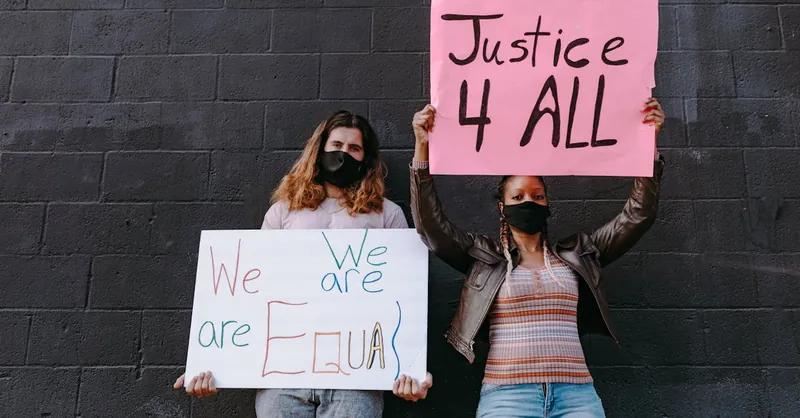
Image courtesy of RDNE Stock project
